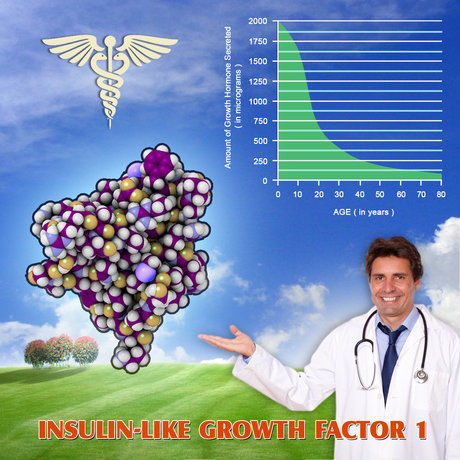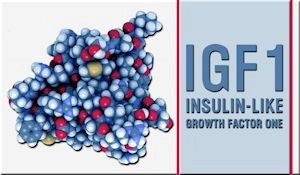Introduction to Prostate Health
Prostate health is a critical concern for American males, particularly as they age. The prostate, a small gland located below the bladder and in front of the rectum, plays a significant role in male reproductive health. It produces a fluid that nourishes and protects sperm. As men grow older, the risk of developing prostate-related issues, including prostate cancer, increases significantly. Understanding the symptoms, diagnosis, and treatment options for prostate cancer is essential for maintaining overall health and well-being.
Symptoms of Prostate Cancer
Prostate cancer often develops without noticeable symptoms in its early stages, which is why regular screening is crucial. However, as the disease progresses, men may experience several symptoms. These can include difficulty starting or stopping urination, a weak or interrupted urine flow, frequent urination, especially at night, pain or burning during urination, blood in the urine or semen, and persistent pain in the back, hips, or pelvis. It's important to note that these symptoms can also be indicative of other non-cancerous conditions such as benign prostatic hyperplasia (BPH) or prostatitis. Therefore, a thorough medical evaluation is necessary to determine the cause of these symptoms.
Diagnosis of Prostate Cancer
Diagnosing prostate cancer typically involves a series of tests and evaluations. The process often begins with a digital rectal exam (DRE) and a prostate-specific antigen (PSA) blood test. While the PSA test can help detect high levels of PSA, which may indicate prostate cancer, it is not definitive on its own. If these initial tests suggest the presence of cancer, further diagnostic steps may include a transrectal ultrasound (TRUS) and a prostate biopsy. During a biopsy, small samples of prostate tissue are removed and examined under a microscope to determine if cancer cells are present. The Gleason score, which assesses the aggressiveness of the cancer, is often used to guide treatment decisions.
Treatment Options for Prostate Cancer
The treatment of prostate cancer depends on several factors, including the stage and grade of the cancer, the patient's age and overall health, and personal preferences. For early-stage prostate cancer, active surveillance may be recommended, which involves regular monitoring without immediate treatment. This approach is suitable for low-risk cancers and can help avoid the side effects of more aggressive treatments.
For more advanced cases, several treatment options are available. Surgery, known as a radical prostatectomy, involves the removal of the entire prostate gland and surrounding tissues. This can be performed through traditional open surgery or minimally invasive robotic-assisted surgery. Radiation therapy, which uses high-energy rays to kill cancer cells, is another common treatment. It can be delivered externally or through brachytherapy, where radioactive seeds are implanted directly into the prostate.
Hormone therapy, which blocks the production or action of male hormones that can fuel prostate cancer growth, is often used in conjunction with other treatments or for advanced cancer. Chemotherapy may be recommended for cancers that have spread beyond the prostate and no longer respond to hormone therapy. Additionally, newer targeted therapies and immunotherapies are being developed and may offer promising alternatives for certain patients.
Conclusion and Recommendations
Prostate cancer is a significant health concern for American males, but with early detection and appropriate treatment, the prognosis can be favorable. Regular screenings, starting at age 50 for most men (or earlier for those at higher risk), are crucial for early detection. Men should discuss their risk factors and screening options with their healthcare provider to develop a personalized plan for maintaining prostate health. By staying informed and proactive, American males can take important steps toward preventing and managing prostate cancer effectively.
Contact Us For A Fast And Professional Response

- Prostate Health in Aging Men: Understanding Changes and Managing Care [Last Updated On: March 13th, 2025] [Originally Added On: March 13th, 2025]
- Exercise: A Key to Enhancing Prostate Health in American Males [Last Updated On: March 17th, 2025] [Originally Added On: March 17th, 2025]
- Prostate Health: Diet, Exercise, Screening, and Lifestyle for American Men's Well-being [Last Updated On: March 19th, 2025] [Originally Added On: March 19th, 2025]
- Prostate Cancer Screening: Debates, Guidelines, and Personalized Recommendations for American Men [Last Updated On: March 20th, 2025] [Originally Added On: March 20th, 2025]
- Prostate Cancer's Psychological Impact on American Men: A Holistic Care Approach [Last Updated On: March 20th, 2025] [Originally Added On: March 20th, 2025]
- Dietary Strategies for Enhancing Prostate Health in American Men [Last Updated On: March 20th, 2025] [Originally Added On: March 20th, 2025]
- Navigating Prostate Cancer Survivorship: A Comprehensive Guide for American Men [Last Updated On: March 20th, 2025] [Originally Added On: March 20th, 2025]
- Prostate and Heart Health: Understanding the Link and Holistic Prevention Strategies [Last Updated On: March 21st, 2025] [Originally Added On: March 21st, 2025]
- Family History's Role in Prostate Health and Cancer Prevention Strategies [Last Updated On: March 21st, 2025] [Originally Added On: March 21st, 2025]
- Understanding Benign Prostatic Hyperplasia: Symptoms, Diagnosis, and Management in American Men [Last Updated On: March 22nd, 2025] [Originally Added On: March 22nd, 2025]
- Stress Impact on Prostate Health: Management Strategies for American Men [Last Updated On: March 22nd, 2025] [Originally Added On: March 22nd, 2025]
- Prostate Cancer: Understanding Treatments and Managing Side Effects in American Men [Last Updated On: March 22nd, 2025] [Originally Added On: March 22nd, 2025]
- Exercise Benefits for Prostate Health: A Guide for American Men [Last Updated On: March 22nd, 2025] [Originally Added On: March 22nd, 2025]
- Prostate Health: Understanding Symptoms, Seeking Care, and Preventive Measures for American Men [Last Updated On: March 23rd, 2025] [Originally Added On: March 23rd, 2025]
- Chemotherapy's Role and Impact on American Men with Prostate Cancer [Last Updated On: March 23rd, 2025] [Originally Added On: March 23rd, 2025]
- Environmental Factors and Prostate Health: Risks and Mitigation Strategies for American Males [Last Updated On: March 23rd, 2025] [Originally Added On: March 23rd, 2025]
- Radiation Therapy: A Key Strategy in Managing Prostate Cancer in American Males [Last Updated On: March 23rd, 2025] [Originally Added On: March 23rd, 2025]
- Prostate Cancer and Cryotherapy: A Minimally Invasive Treatment Option for American Men [Last Updated On: March 23rd, 2025] [Originally Added On: March 23rd, 2025]
- Prostate and Bone Health: Critical Links and Holistic Management for American Men [Last Updated On: March 24th, 2025] [Originally Added On: March 24th, 2025]
- Heavy Metals' Impact on Prostate Health: Cadmium, Lead, Arsenic Risks and Prevention [Last Updated On: March 24th, 2025] [Originally Added On: March 24th, 2025]
- Hydration's Vital Role in Prostate Health for American Males [Last Updated On: March 24th, 2025] [Originally Added On: March 24th, 2025]
- Prostate Health: Foods to Avoid for American Men's Well-being [Last Updated On: March 24th, 2025] [Originally Added On: March 24th, 2025]
- Immunotherapy: A New Hope in Prostate Cancer Treatment for American Men [Last Updated On: March 24th, 2025] [Originally Added On: March 24th, 2025]
- Prostate Cancer's Impact on Fertility: Preservation and Management Strategies [Last Updated On: March 24th, 2025] [Originally Added On: March 24th, 2025]
- HIFU: A Minimally Invasive Hope for Prostate Cancer Treatment [Last Updated On: March 24th, 2025] [Originally Added On: March 24th, 2025]
- Alcohol Consumption and Prostate Health: Risks, Mechanisms, and Recommendations for American Men [Last Updated On: March 25th, 2025] [Originally Added On: March 25th, 2025]
- Hormone Therapy in Prostate Cancer: Mechanisms, Benefits, and Management for American Men [Last Updated On: March 25th, 2025] [Originally Added On: March 25th, 2025]
- Vitamin D's Impact on Prostate Health: Insights and Strategies for American Males [Last Updated On: March 25th, 2025] [Originally Added On: March 25th, 2025]
- Prostate Health and Sleep Quality: A Vital Connection for American Men [Last Updated On: March 25th, 2025] [Originally Added On: March 25th, 2025]
- Prostate Cancer Treatment: Understanding Brachytherapy's Benefits and Applications [Last Updated On: March 25th, 2025] [Originally Added On: March 25th, 2025]
- Prostate Cancer and Palliative Care: Enhancing Quality of Life for American Men [Last Updated On: March 25th, 2025] [Originally Added On: March 25th, 2025]
- Green Tea: A Natural Remedy for Prostate Health in American Males [Last Updated On: March 25th, 2025] [Originally Added On: March 25th, 2025]
- Antioxidants: Key to Prostate Health and Cancer Prevention in American Males [Last Updated On: March 25th, 2025] [Originally Added On: March 25th, 2025]
- Lycopene's Role in Enhancing Prostate Health: Benefits and Dietary Integration [Last Updated On: March 25th, 2025] [Originally Added On: March 25th, 2025]
- Targeted Therapy Advances in Prostate Cancer Treatment for American Men [Last Updated On: March 25th, 2025] [Originally Added On: March 25th, 2025]
- Chronic Inflammation's Impact on Prostate Health: Causes, Risks, and Management Strategies [Last Updated On: March 25th, 2025] [Originally Added On: March 25th, 2025]
- Active Surveillance: A Key Strategy for Managing Low-Risk Prostate Cancer in American Men [Last Updated On: March 26th, 2025] [Originally Added On: March 26th, 2025]
- Air Pollution's Impact on Prostate Health: Risks, Mechanisms, and Prevention Strategies [Last Updated On: March 26th, 2025] [Originally Added On: March 26th, 2025]
- Support Groups: Enhancing Prostate Cancer Management and Well-being [Last Updated On: March 26th, 2025] [Originally Added On: March 26th, 2025]
- CyberKnife: A Non-Invasive Option for Prostate Cancer Treatment in American Men [Last Updated On: March 26th, 2025] [Originally Added On: March 26th, 2025]
- Prostate Cancer Stages, Grades, and Treatment Options for American Men [Last Updated On: March 26th, 2025] [Originally Added On: March 26th, 2025]
- Plastics and Prostate Health: Risks, Research, and Mitigation Strategies [Last Updated On: March 26th, 2025] [Originally Added On: March 26th, 2025]
- Omega-3 Fatty Acids: A Promising Approach to Prostate Health in American Males [Last Updated On: March 26th, 2025] [Originally Added On: March 26th, 2025]
- Selenium's Role in Prostate Health: Benefits and Dietary Sources [Last Updated On: March 27th, 2025] [Originally Added On: March 27th, 2025]
- Photodynamic Therapy: A Promising Approach for Prostate Cancer Treatment in American Men [Last Updated On: March 27th, 2025] [Originally Added On: March 27th, 2025]
- Vitamin E's Role in Prostate Health: Benefits, Risks, and Dietary Sources [Last Updated On: March 27th, 2025] [Originally Added On: March 27th, 2025]
- Proton Therapy: A Precise Approach to Treating Prostate Cancer in American Men [Last Updated On: March 28th, 2025] [Originally Added On: March 28th, 2025]
- Zinc's Vital Role in Prostate Health and Cancer Prevention for American Males [Last Updated On: March 28th, 2025] [Originally Added On: March 28th, 2025]
- Prostate Cancer Management: Understanding Watchful Waiting for American Men [Last Updated On: March 28th, 2025] [Originally Added On: March 28th, 2025]
- Pesticide Exposure and Prostate Health: Risks and Prevention for American Males [Last Updated On: March 28th, 2025] [Originally Added On: March 28th, 2025]
- Prostate Cancer Surgery: Benefits, Risks, and Recovery for American Men [Last Updated On: March 29th, 2025] [Originally Added On: March 29th, 2025]
- Chemoprevention Strategies for Prostate Cancer: Agents and Implementation [Last Updated On: March 29th, 2025] [Originally Added On: March 29th, 2025]
- EMFs and Prostate Health: Insights and Guidance for American Males [Last Updated On: March 30th, 2025] [Originally Added On: March 30th, 2025]
- Robotic Surgery: A Minimally Invasive Option for Prostate Cancer Treatment [Last Updated On: April 2nd, 2025] [Originally Added On: April 2nd, 2025]
- Focal Therapy: A Promising Approach to Prostate Cancer Treatment in American Men [Last Updated On: April 2nd, 2025] [Originally Added On: April 2nd, 2025]
- Cruciferous Vegetables: Enhancing Prostate Health in American Males [Last Updated On: April 2nd, 2025] [Originally Added On: April 2nd, 2025]
- Laparoscopic Surgery for Prostate Cancer: Benefits, Risks, and Recovery Insights [Last Updated On: April 6th, 2025] [Originally Added On: April 6th, 2025]
- Prostate Cancer Recurrence: Understanding and Utilizing Salvage Therapy Options [Last Updated On: April 6th, 2025] [Originally Added On: April 6th, 2025]
- Endocrine Disruptors and Prostate Health: Risks and Mitigation Strategies for American Males [Last Updated On: April 7th, 2025] [Originally Added On: April 7th, 2025]
- Industrial Chemicals and Prostate Health: Risks, Mechanisms, and Prevention Strategies [Last Updated On: April 8th, 2025] [Originally Added On: April 8th, 2025]
- Neoadjuvant Therapy: Enhancing Prostate Cancer Management in American Men [Last Updated On: April 9th, 2025] [Originally Added On: April 9th, 2025]
- Prostate Cancer in American Men: Understanding Adjuvant Therapy Options and Impacts [Last Updated On: April 9th, 2025] [Originally Added On: April 9th, 2025]
- Flaxseed: A Natural Approach to Enhancing Prostate Health in American Males [Last Updated On: April 10th, 2025] [Originally Added On: April 10th, 2025]
- Soy Isoflavones: A Dietary Approach to Enhancing Prostate Health in American Males [Last Updated On: April 10th, 2025] [Originally Added On: April 10th, 2025]
- Palliative Surgery in Prostate Cancer: Enhancing Quality of Life for American Men [Last Updated On: April 10th, 2025] [Originally Added On: April 10th, 2025]
- Prostate Health in American Males: Pharmaceuticals, Side Effects, and Holistic Management [Last Updated On: April 12th, 2025] [Originally Added On: April 12th, 2025]
- Prostate Cancer and Bone Health: The Critical Role of Bisphosphonates [Last Updated On: April 12th, 2025] [Originally Added On: April 12th, 2025]
- Pomegranate's Role in Enhancing Prostate Health: Benefits and Dietary Integration [Last Updated On: April 13th, 2025] [Originally Added On: April 13th, 2025]
- Enzalutamide: Advancing Prostate Cancer Treatment and Outcomes in American Men [Last Updated On: April 16th, 2025] [Originally Added On: April 16th, 2025]
- Prostate Health Challenges and Strategies for Long-Haul Truckers [Last Updated On: April 16th, 2025] [Originally Added On: April 16th, 2025]
- Radium-223: A Targeted Therapy for Metastatic Prostate Cancer in American Men [Last Updated On: April 16th, 2025] [Originally Added On: April 16th, 2025]
- Heavy Physical Work's Impact on Prostate Health in American Males [Last Updated On: April 17th, 2025] [Originally Added On: April 17th, 2025]
- Shift Work's Impact on Prostate Health: Risks and Mitigation Strategies for American Males [Last Updated On: April 18th, 2025] [Originally Added On: April 18th, 2025]
- Abiraterone: A Key Treatment for Metastatic Prostate Cancer in American Men [Last Updated On: April 18th, 2025] [Originally Added On: April 18th, 2025]
- Turmeric's Role in Enhancing Prostate Health: Benefits and Usage Guide [Last Updated On: April 18th, 2025] [Originally Added On: April 18th, 2025]
- Denosumab's Role in Managing Advanced Prostate Cancer in American Men [Last Updated On: April 18th, 2025] [Originally Added On: April 18th, 2025]
- RANK Ligand Inhibitors: A New Hope in Prostate Cancer Bone Metastasis Treatment [Last Updated On: April 19th, 2025] [Originally Added On: April 19th, 2025]
- Ginger's Role in Enhancing Prostate Health: A Holistic Approach [Last Updated On: April 19th, 2025] [Originally Added On: April 19th, 2025]
- Obesity's Impact on Prostate Health: A 15-Year Epidemiological Review [Last Updated On: April 22nd, 2025] [Originally Added On: April 22nd, 2025]
- Apalutamide: A New Hope in Prostate Cancer Treatment for American Men [Last Updated On: April 22nd, 2025] [Originally Added On: April 22nd, 2025]

















